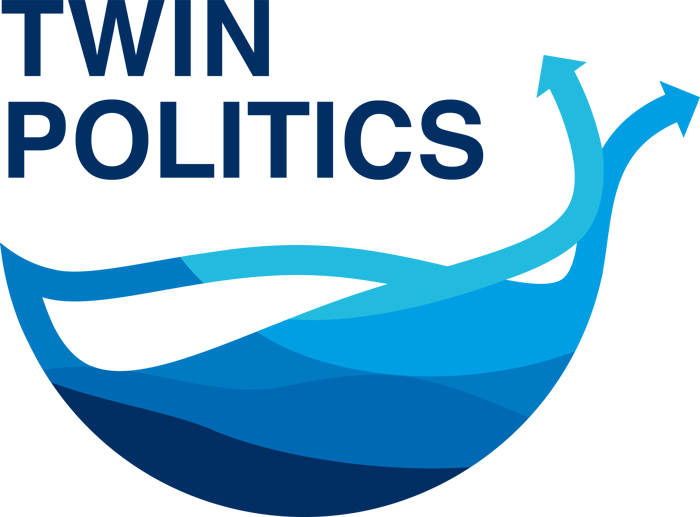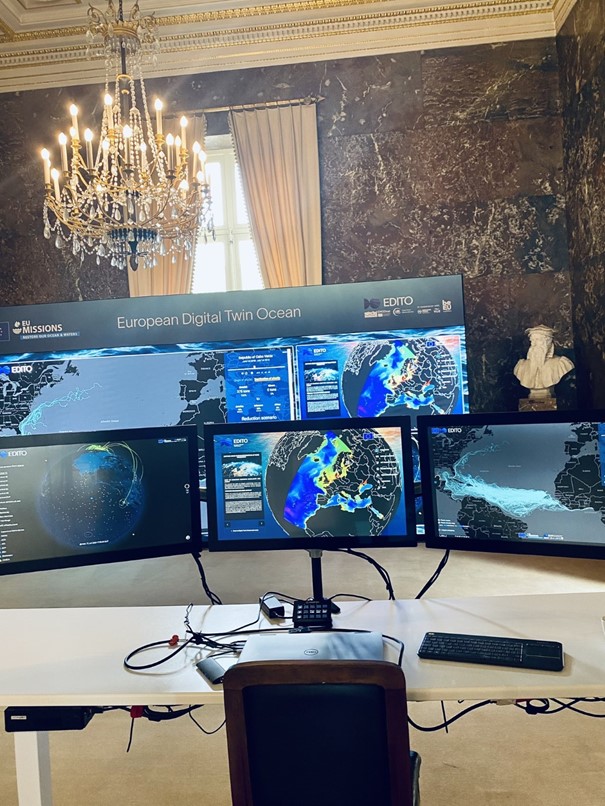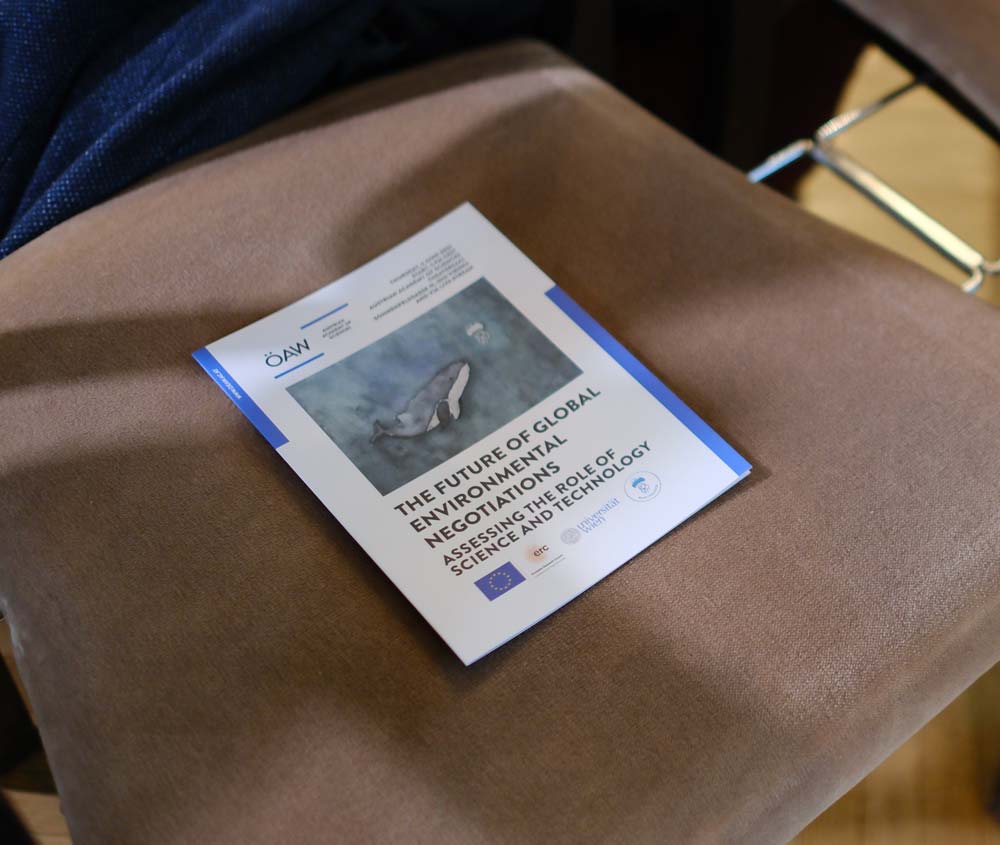IPW Lecture with Henrik and Noelle Selin “Do International Environmental Treaties Work? ” on 20 November
We are excited to invite you to our IPW Lecture with the internationally renowned political scientists Henrik Selin (Boston University) and Noelle Selin (MIT).
Extended deadline: Workshop “Discursive and Epistemic Selectivity in Global Environmental Negotiations” with Colin Hay – Call for Papers
We are excited to annouce that the deadline for abstract submissions for the workshop "Discursive and Epistemic Selectivity in Global Environmental Negotiations" with Sciences Po Prof. Dr. Colin Hay and leader of the TwinPolitics Group Prof. Dr. Alice Vadrot is extended to December 15 The workshop will focus on the
Ocean Seminar First Session of the second term on October 29 – Madhulika Bhati speaks on Patent Landscape of Digital Twin Technologies
We are excited to welcome you back to our new semester of our Ocean Seminar series! In this first installment of the fall semester 2025/26 our TwinPolitics Ocean Seminar Series on Wednesday, 29th October 2025, from 17:00 to 18:30 (CET) our guest speaker, Madhulika Bhati, will talk about the topic
Ocean Seminar Series Fall 2025
The ERC project TwinPolitics is proud to present the second semester of the insightful online lecture series Ocean Seminars! The TwinPolitics Ocean Seminar Series creates a space for discussion between experts from academia, policymaking, and NGOs to exchange ideas on ocean governance. The focus is on recent developments in data,
Workshop “Discursive and Epistemic Selectivity in Global Environmental Negotiations” with Colin Hay – Call for Papers
We are excited to annouce this Call for Papers for the workshop "Discursive and Epistemic Selectivity in Global Environmental Negotiations" with Sciences Po Prof. Dr. Colin Hay and leader of the TwinPolitics Group Prof. Dr. Alice Vadrot. The workshop will focus on the application of discursive and epistemic selectivity theory
New Policy Brief “Addressing Challenges in the Biodiversity Monitoring Data Ecosystem”
We are proud to present our new MARCO-BOLO Policy Brief "Addressing Challenges in the Biodiversity Monitoring Data Ecosystem". Access to reliable biodiversity data is essential for effective marine conservation and policy. However, many stakeholders still face major hurdles when trying to use this data in practice. To better understand these
Final Report on the Side Event on the EU-DTO at UNOC 2025
The Side Event on the Political and Ethical Considerations of the European Digital Twin of the Ocean at the United Nations Ocean Conference in Nice on June 12 brought together leading experts and diplomats on oceans governance and equitable access to ocean data. We want to thank our wonderful panel
Special “Ocean with David Attenborough” Screening with Discussion and Reception
The Environmental Politics Research Group cordially invite you to a special screening of the new David Attenborough movie "Ocean" In cooperation with the Environmental and Climate Research Hub (ECH), the High Seas Alliance, IDDRI and the French Embassy in Austria, we show the presitigious new documentary on our diverse
Alice Vadrot receives prestigious Henderlein Prize
We are delighted to announce that Alice Vadrot has been awarded the 2025 Franco-German Henrik Enderlein Prize. The €10,000 research prize recognises outstanding social scientists under the age of 40 whose work contributes to shaping the future of Europe. Vadrot was selected for her pioneering research on multilateral environmental diplomacy
Ocean Seminar Fourth Session on 18th June – Ocean Data Science Initiatives and the Making of Ocean Worlds
With UNOC3 coming to an end, we invite you to our fourth and final Ocean Seminar this semester as a sort of cap to the big Ocean Conference! In this fourth installment of our TwinPolitics Ocean Seminar Series on Wednesday, 18th June 2025, from 17:00 to 18:30 (CET) our guest
Panel on Digital Twins – Side Event on the EU-DTO at UNOC 2025
Making the Digital Twin of the Ocean fit for Global Marine Governance: Ethics, Politics, and Transformative Power? 12 June at 6 p.m. in the Auditorium at the Institut de la Mer in Villefranche followed by a reception The Digital Twin of the Ocean is high on the EU’s political agenda
Ocean Data Survey
This survey is interested in the use of ocean data, technology and knowledge by actors involved in ocean-related negotiations and policy-making. How and by whom is the data used? What challenges the use of data and technology? What prevents decision-makers from using specific knowledge? What are the concrete data needs
Ocean Seminar Third Session on 28th May – Steering Representations—Towards a Critical Understanding of Digital Twins in environmental governance
Let's get critical! In the third installment of our TwinPolitics Ocean Seminar Series on Wednesday, 28th May 2025, from 17:00 to 18:30 (CET) we are looking through a critical lense. Our guest speaker, Paulan Korenhof, will talk about the topic Steering Representations—Towards a Critical Understanding of Digital Twins in environmental
Save the date – Side Event on the EU-DTO at UNOC 2025
We are excited to share the first "Save the Date" for our Side event at this year's United Nations' Ocean conference in Nice. Our panel will include high level diplomats and experts on ocean and biodiversity governance and will explore how we can ensure that the EU DTO ist not
Ocean Seminar Second Session on 30th April – The ongoing construction of the EU Digital Twin of the Ocean (DTO)
We are thrilled to invite you to our second session of TwinPolitics Ocean Seminar Series on Wednesday, 30th April 2025, from 17:00 to 18:30 (CET). Our guest speaker, Alain Arnaud, Director of the Digital Ocean Department at Mercator Ocean International, managing Mercator Ocean's DTO program, will present the topic The
Join our team: Student assistant position within the ERC project “TwinPolitics”
Are you interested in environmental governance and working on cutting edge political science research on the future of international negotiations regarding marine ecology? Emerging digital twin technology holds promise in future solutions on governance and the mitigation of urgent environmental challenges. The central objective of TwinPolitics is to investigate the development
Ocean Seminar First Session on 26th March – The EU Digital Twin Ocean: A Signature Initiative of the EU Mission Restore our Ocean and Waters
We are thrilled to invite you to our first session of TwinPolitics Ocean Seminar Series on Wednesday, 26th March 2025, from 17:00 to 18:30 (CET). Our guest speaker, Nicolas Segebarth, Policy Officer in the Ocean, Seas, and Waters Unit of DG Research & Innovation at the European Commission, will present
TwinPolitics Ocean Seminar First Term (Mar-Jun 2025)
On this page you can see the Ocean Seminars of Spring 2025 - for the current schedule of Fall 2025 (starting on October 29) - please click here. The TwinPolitics Ocean Seminar Series creates a space for discussion between experts from academia, policymaking, and NGOs to exchange ideas
TwinPolitics Ocean Seminar Series
What is the TwinPolitics Ocean Seminar about? The world’s oceans are home to prestige ecosystems and marine biodiversity, yet much remains unknown. Advances in big data and digital technologies such as digital twins of the ocean (DTO) are opening new possibilities to better understand and protect our oceans but also
Oceans of Data: Diplomacy in a Digital Aquarium – Will Marine Policy Become More Scientific?
On the 23rd of October, the Environment and Climate Research Hub published an article on the ERC-funded TwinPolitics project. This article explores the European Digital Twin of the Ocean (DTO) and its potential as a tool for science-based policy, focusing on political challenges, inclusivity, and data equity. The text dives
(In German) Alice Vadrot im Podcast zum Schutz der Biodiversität in den Meeren
Lea Zauner spricht mit Politikwissenschaftlerin Alice Vadrot im Podcast Format 'MAKRO MICRO' der Österreichischen Akademie der Wissenschaften.
(In German) Interview mit Alice Vadrot in ORF2 ‘Eco’ Format
In der ORF-Serie 'Eco' wird unter dem Titel 'Milliardengeschäft Meere: Tiefseebergbau soll den wachsenden Hunger nach Rohstoffen befriedigen' über möglichen Tiefseebergbau berichtet. Ein Interview mit Alice Vadrot.
(In German) ÖAW Vortrag mit Assoc. Prof. Alice Vadrot: Geologie im Alltag
Das Symposium der Österreichischen Akademie der Wissenschaften beleuchtet die Bedeutung der Geologie im Alltag, beginnend vom Paläolithikum über die Antike bis in die Moderne und zeigt die starke Verflechtung zwischen Geologie und Kultur. Das tägliche Leben ist überraschend eng mit Geologie verbunden. Geologie ist, wortwörtlich, das Salz des Lebens.
Alice Vadrot at the Digital Ocean Forum 2024
Alice Vadrot attended the Digital Ocean Forum (DOF) 2024, which took place on 13th June 2024 at the Palace of the Academies in Brussels.
The Future of Global Environmental Negotiations: Assessing the Role of Science and Technology
On the 6th of June 2024, the research group of Alice Vadrot celebrated six years of research within the ERC Starting Grant Project MARIPOLDATA (www.maripoldata.eu)
Warum die EU einen digitalen Zwilling des Ozeans baut
Die EU setzt derzeit gemeinsam mit der Mercator Stiftung ein ehrgeiziges Projekt um. Wissenschaftler*innen bauen eine digitale Kopie des Ozeans, die 2024 fertig sein soll.



